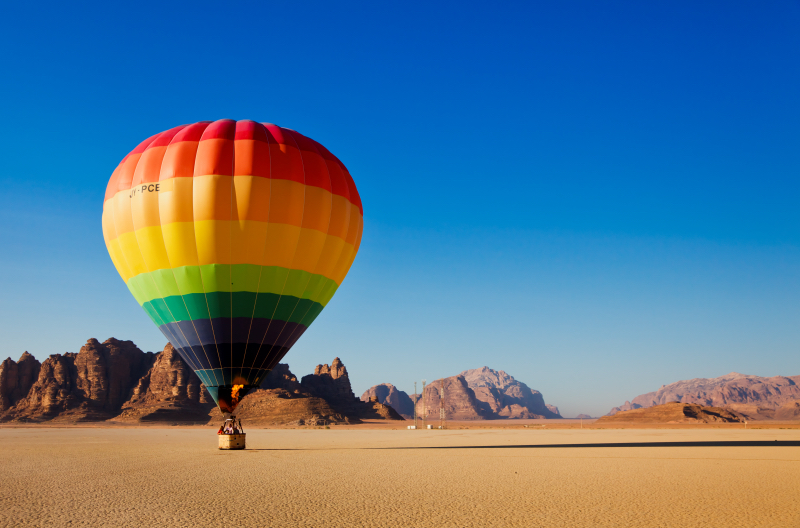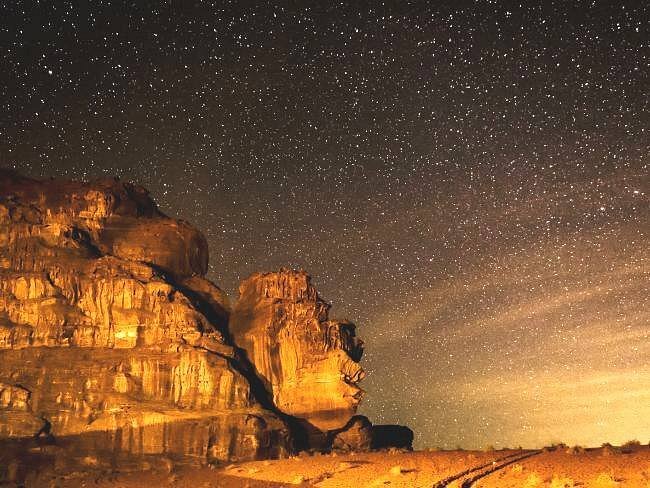Eco-Tourism in Wadi Rum: Sustainable Desert Travel

How to minimize your impact while maximizing your experience.
Wadi Rum's extraordinary landscape has drawn increasing numbers of visitors in recent years, particularly following its appearances in films like "The Martian" and "Dune." While tourism brings vital economic benefits to local Bedouin communities, it also presents challenges for preserving this fragile desert ecosystem. Sustainable travel practices are essential to ensure that Wadi Rum remains pristine for future generations while continuing to support the livelihoods of those who call it home.
Understanding Wadi Rum's Ecosystem
To appreciate the importance of sustainable tourism in Wadi Rum, it's helpful to understand what makes this ecosystem both remarkable and vulnerable:
A Fragile Desert Environment
Despite its harsh appearance, Wadi Rum is a delicate ecosystem that has evolved over millions of years:
- Limited water resources: The desert receives minimal rainfall, making every water source precious
- Slow regeneration: Desert plants grow extremely slowly and can take decades to recover from damage
- Fragile soil crust: The desert surface often has a biological crust that prevents erosion but is easily damaged by vehicles and foot traffic
- Specialized wildlife: Desert animals have adapted to specific conditions and can be sensitive to disturbance
Cultural Heritage
Wadi Rum is not just a natural wonder but also a cultural landscape with thousands of years of human history:
- Ancient petroglyphs and inscriptions: Dating back thousands of years and vulnerable to vandalism and weathering
- Bedouin cultural traditions: Including knowledge of desert survival, traditional music, and crafts
- Historical sites: Connected to figures like T.E. Lawrence and the Arab Revolt
Current Environmental Challenges
The growing popularity of Wadi Rum has introduced several environmental challenges that sustainable tourism practices aim to address:
Waste Management
The increase in visitors has led to waste management issues:
- Plastic bottles and packaging left in remote areas
- Improper disposal of non-biodegradable items
- Limited recycling infrastructure in the region
- Cigarette butts, which can take up to 10 years to decompose
Water Usage
Water is precious in the desert, yet tourism increases demand:
- Camps require water for drinking, cooking, and sometimes showers
- Traditional water sources used by Bedouin are under pressure
- Water must often be transported into the desert, increasing carbon footprint
Habitat Disruption
Increased human presence affects the desert ecosystem:
- Off-road driving creating new tracks and damaging vegetation
- Noise pollution disturbing wildlife
- Collection of wood for campfires affecting slow-growing desert plants
- Wildlife behavioral changes due to human food and waste
Cultural Impacts
Tourism can both preserve and threaten cultural heritage:
- Commercialization of Bedouin traditions
- Pressure to modify cultural practices to meet tourist expectations
- Risk of damage to archaeological sites
Sustainable Tourism Initiatives in Wadi Rum
Several promising initiatives are addressing these challenges and promoting more sustainable tourism in Wadi Rum:
Protected Area Management
Wadi Rum was designated a Protected Area in 1997 and a UNESCO World Heritage Site in 2011, leading to improved management practices:
- Regulated access through entrance fees that support conservation
- Designated routes for vehicles to minimize habitat disruption
- Ranger patrols to monitor and protect sensitive areas
- Visitor education programs at the Visitor Center
Community-Based Tourism
Local Bedouin communities are increasingly involved in managing tourism:
- Bedouin-owned camps and tour operations: Ensuring economic benefits stay within the community
- Traditional knowledge preservation: Guides sharing authentic cultural information and desert skills
- Local employment: Creating jobs that reduce pressure on traditional livelihoods like herding
Eco-Friendly Camps
Some camps are implementing sustainable practices:
- Solar power: Using renewable energy for lighting and basic electricity needs
- Water conservation: Implementing systems to minimize water usage
- Waste reduction: Eliminating single-use plastics and implementing recycling
- Composting toilets: Reducing water usage and environmental impact
Educational Initiatives
Raising awareness among visitors and locals:
- Environmental education: For local guides and camp operators
- Visitor guidelines: Clear information about responsible behavior
- School programs: Engaging local children in conservation efforts
How to Be a Responsible Visitor
As a traveler, your choices can significantly impact Wadi Rum's environment and communities. Here are practical ways to minimize your footprint while maximizing your positive contribution:
Before Your Trip
- Research accommodations: Choose camps with clear environmental policies and sustainable practices
- Select responsible tour operators: Look for those owned by local Bedouin and committed to sustainable practices
- Pack thoughtfully: Bring reusable items and minimize packaging
- Learn about Bedouin culture: Understanding local customs helps ensure respectful interactions
During Your Visit
Waste Management
- Pack out what you pack in: Carry all trash until you can dispose of it properly
- Avoid single-use plastics: Bring a reusable water bottle, refilling it at your camp
- Cigarette butts: If you smoke, carry a portable ashtray
- Toilet paper: Pack out used toilet paper or bury it deeply when in remote areas
Water Conservation
- Take short showers: If your camp offers showers, keep them brief
- Reuse towels: Hang them to dry rather than requesting fresh ones
- Be mindful of water usage: Remember that every drop is precious in the desert
Respecting the Environment
- Stay on established trails: When hiking, stick to existing paths
- Respect wildlife: Observe animals from a distance and never feed them
- Leave no trace: Don't collect rocks, plants, or artifacts
- Minimize noise: Enjoy the desert's natural silence
Cultural Respect
- Dress modestly: Cover shoulders and knees out of respect for local customs
- Ask before photographing people: Especially Bedouin women
- Learn basic Arabic phrases: Simple greetings are appreciated
- Respect private areas: Some parts of camps may be family-only spaces
Supporting Local Communities
- Buy local products: Purchase handicrafts directly from Bedouin artisans
- Use local guides: Their knowledge enhances your experience while providing employment
- Pay fair prices: Avoid aggressive bargaining over services
- Tip appropriately: When service has been good
After Your Trip
- Provide feedback: Let camps and tour operators know if you appreciated their sustainable practices (or if you have suggestions)
- Share responsibly: When posting on social media, highlight sustainable practices and respect for the environment
- Review thoughtfully: Mention environmental efforts in online reviews to encourage more sustainable practices
- Spread awareness: Share information about Wadi Rum's ecological importance with fellow travelers
Sustainable Accommodation Options
Several camps in Wadi Rum are making significant efforts toward sustainability. While practices vary, these operations demonstrate commitment to reducing environmental impact:
Eco-Friendly Camps to Consider
- Wadi Rum Nomads: Uses solar power, practices water conservation, and has a strong commitment to waste reduction
- Memories Aicha Luxury Camp: Despite being a luxury option, implements various eco-friendly practices including solar power and water recycling
- Rahayeb Desert Camp: Focuses on traditional Bedouin-style accommodations with minimal environmental impact
- Wadi Rum Starlight Camp: Emphasizes stargazing with minimal light pollution and operates with a low-impact philosophy
Questions to Ask When Booking
When researching accommodations, consider asking these questions to assess their sustainability commitment:
- How do you manage waste and recycling?
- What energy sources do you use?
- How do you conserve water?
- Are you Bedouin-owned and operated?
- What percentage of your staff is local?
- Do you have any specific environmental policies or certifications?
Sustainable Tour Options
The way you explore Wadi Rum can significantly impact your environmental footprint:
Lower-Impact Activities
- Hiking: The lowest-impact way to explore, though always with a guide
- Camel trekking: Traditional and low-carbon, though animal welfare should be considered
- Stargazing: Requires no transportation once at your viewing location
- Cultural experiences: Learning traditional skills or music at camp
Higher-Impact Activities (to Use Judiciously)
- Jeep tours: Standard way to see Wadi Rum but choose operators who stick to established tracks
- Hot air ballooning: High fuel usage but minimal ground impact
- ATV or dune buggy tours: High noise and environmental impact, best avoided by eco-conscious travelers
The Future of Sustainable Tourism in Wadi Rum
Several promising developments suggest a more sustainable future for tourism in Wadi Rum:
Emerging Trends
- Certification programs: Growing interest in formal eco-certification for camps and tour operators
- Electric vehicles: Some operators exploring electric jeeps for desert tours
- Visitor quotas: Potential implementation of daily visitor limits to reduce impact
- Expanded protected zones: Designating certain areas for recovery or limited access
- Cultural heritage programs: Formal efforts to document and preserve Bedouin knowledge and traditions
Challenges Ahead
Despite progress, significant challenges remain:
- Growing visitor numbers: Increasing pressure on the environment and infrastructure
- Climate change: Affecting already scarce water resources and fragile ecosystems
- Balancing development: Meeting tourist expectations while preserving authenticity
- Waste management infrastructure: Need for better systems throughout the region
The Bigger Picture: Why Sustainable Tourism Matters
Sustainable tourism in Wadi Rum is not just about preserving a beautiful destination—it's part of a larger responsibility:
Environmental Stewardship
Desert ecosystems are particularly vulnerable to climate change and human impact. By practicing sustainable tourism in Wadi Rum, visitors contribute to the preservation of a unique environment that hosts specialized plant and animal species found nowhere else.
Cultural Preservation
The Bedouin way of life represents thousands of years of accumulated knowledge about living sustainably in one of Earth's most challenging environments. Supporting authentic cultural experiences helps preserve this knowledge for future generations.
Economic Justice
Sustainable tourism ensures that economic benefits flow primarily to local communities rather than outside operators, helping maintain traditional livelihoods while creating new opportunities.
Global Responsibility
As travelers, our choices collectively shape the future of destinations worldwide. The practices we support in Wadi Rum reflect our broader commitment to responsible global citizenship.
By choosing to travel responsibly in Wadi Rum, you're not just having a more authentic experience—you're contributing to the preservation of one of Earth's most extraordinary landscapes and the cultural heritage of its people. The red sands and towering mountains have stood for millions of years, and with mindful tourism practices, they will continue to inspire awe in visitors for generations to come.

